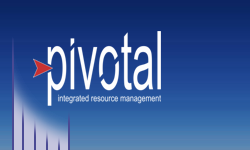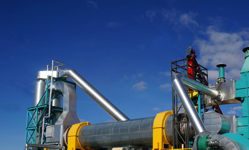|
Governments and businesses often need help planning for and implementing the best
infrastructure solutions. Pivotal helps assess needs and plan
this, including by reviewing technology options with a focus on maximizing value using Integrated Resource Management ["IRM"]
- a full life cycle assessment model and combined financial and
environmental assessment. A summary example of this kind of
assessment is embedded in the study undertaken for the Township of
Esquimalt (see s4.1
of the Technical Review - pdf page 60). In British Columbia,
this type of options assessment is required in waste management plans.
While we consider any
technology, one of the key ones we find suitable for most purposes is
Advanced Gasification. Developed over many years, this is highly
scalable, efficient and small, as well as comparatively inexpensive,
especially when viewed over its life cycle. The ability to handle
a wide range of wastes with a substantial array of outputs means it
can yield revenues not feasible with other options. For more
information contact Pivotal or see summaries
on the RotoGasifier,
Fluidized bed or
CircleDraft systems. Papers covering
biochar and
energy systems are also available.
Example A community planned to pump an average 598 wet tonnes per day of slurried
biosolids approximately 20km to an energy centre comprising an anaerobic
digester, dryers and an incinerator. The equivalent IRM approach
using an Advanced Gasifier was evaluated by independent engineers, but
not evaluated financially. Using Pivotal's IRM approach the
overall life cycle total net costs worked out at $655m more expensive
for the proposed anaerobic digestion solution. Both resource
recovery and GHG reduction is better with an IRM approach. Pivotal
partnered with companies valued at approaching C$20bn to guarantee the
solutions and reduce the cost. The projected GHG reduction of
using Advanced Gasification is more than 10 times the savings from the
proposed anaerobic digestion solution, at a fraction of the cost. |


